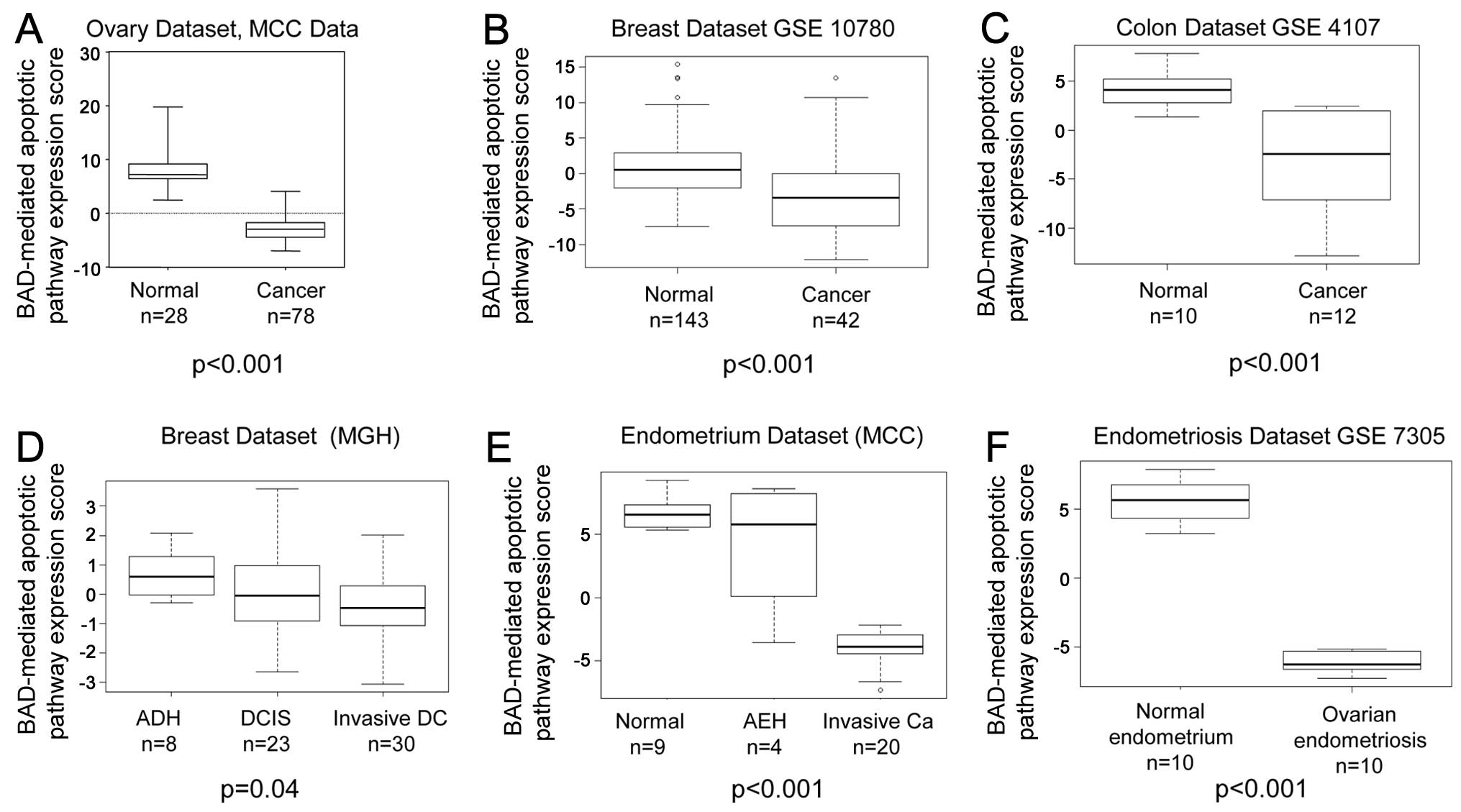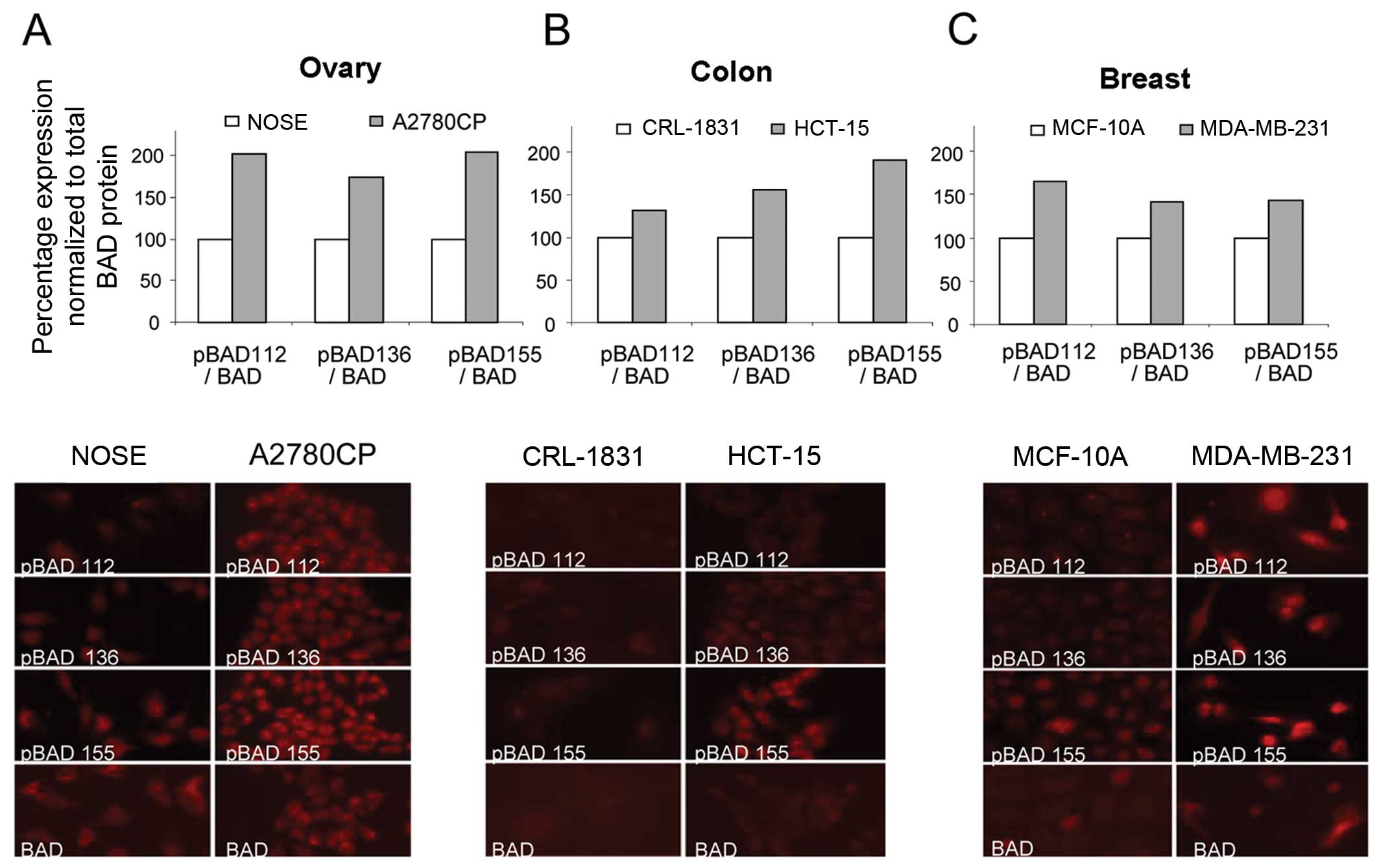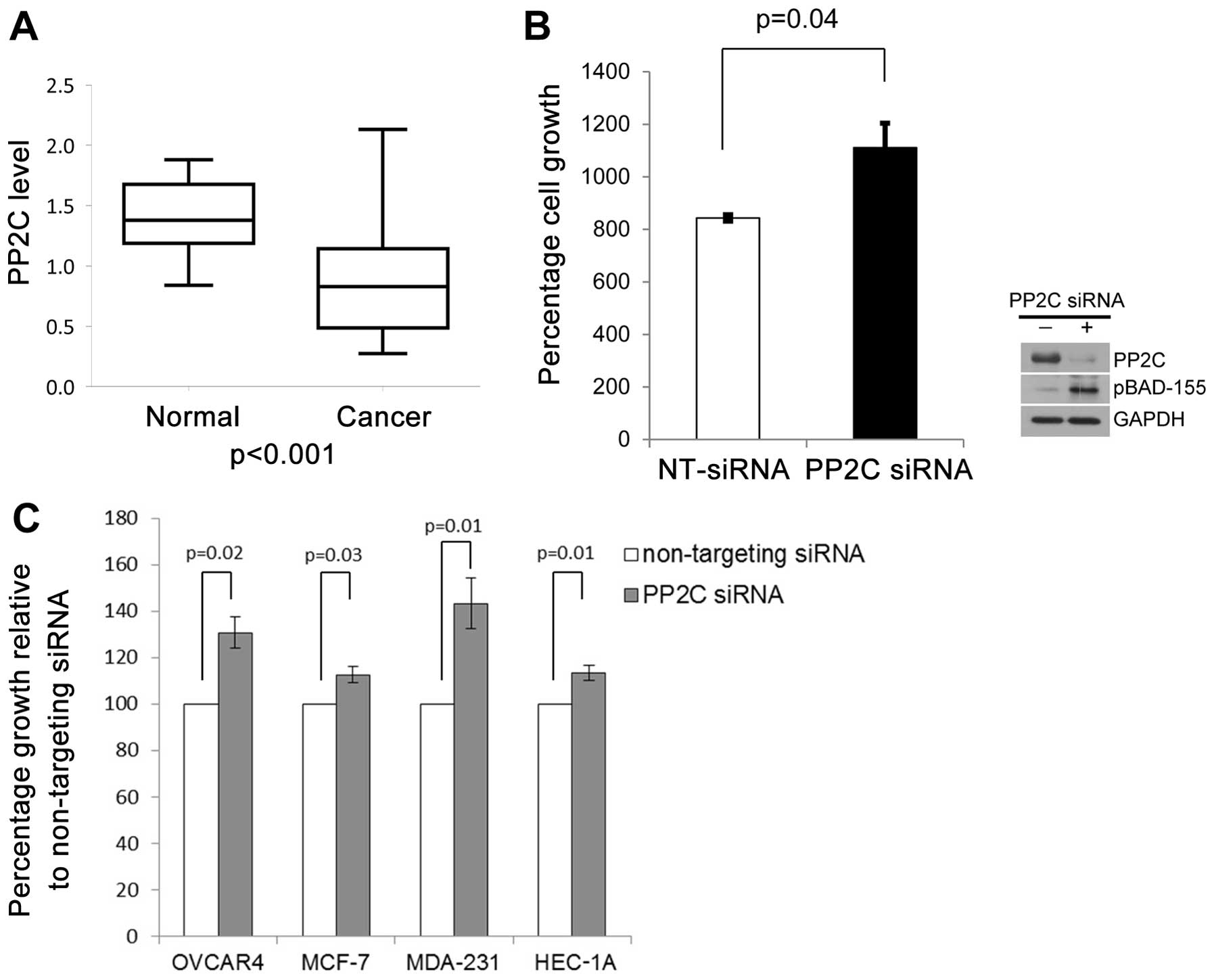Spandidos Publications style
Stickles XB, Marchion DC, Bicaku E, Al Sawah E, Abbasi F, Xiong Y, Bou Zgheib N , Boac BM, Orr BC, Judson PL, Judson PL, et al: BAD-mediated apoptotic pathway is associated with human cancer development. Int J Mol Med 35: 1081-1087, 2015.
APA
Stickles, X.B., Marchion, D.C., Bicaku, E., Al Sawah, E., Abbasi, F., Xiong, Y. ... Lancaster, J.M. (2015). BAD-mediated apoptotic pathway is associated with human cancer development. International Journal of Molecular Medicine, 35, 1081-1087. https://doi.org/10.3892/ijmm.2015.2091
MLA
Stickles, X. B., Marchion, D. C., Bicaku, E., Al Sawah, E., Abbasi, F., Xiong, Y., Bou Zgheib, N. ., Boac, B. M., Orr, B. C., Judson, P. L., Berry, A., Hakam, A., Wenham, R. M., Apte, S. M., Berglund, A. E., Lancaster, J. M."BAD-mediated apoptotic pathway is associated with human cancer development". International Journal of Molecular Medicine 35.4 (2015): 1081-1087.
Chicago
Stickles, X. B., Marchion, D. C., Bicaku, E., Al Sawah, E., Abbasi, F., Xiong, Y., Bou Zgheib, N. ., Boac, B. M., Orr, B. C., Judson, P. L., Berry, A., Hakam, A., Wenham, R. M., Apte, S. M., Berglund, A. E., Lancaster, J. M."BAD-mediated apoptotic pathway is associated with human cancer development". International Journal of Molecular Medicine 35, no. 4 (2015): 1081-1087. https://doi.org/10.3892/ijmm.2015.2091

















